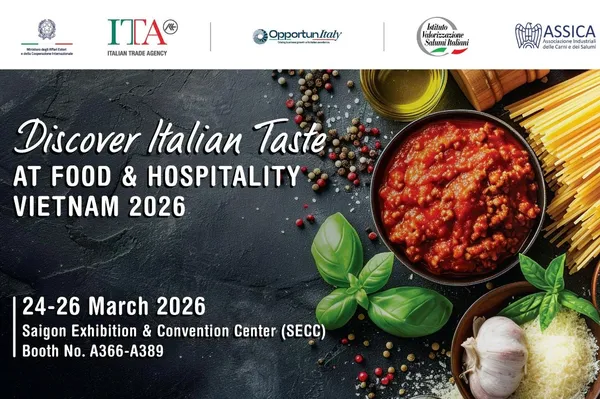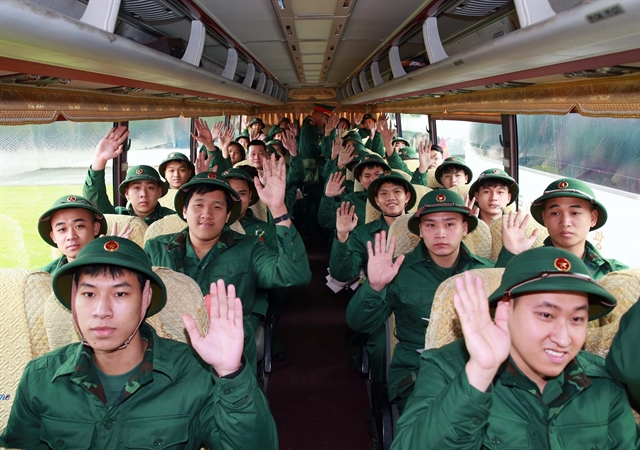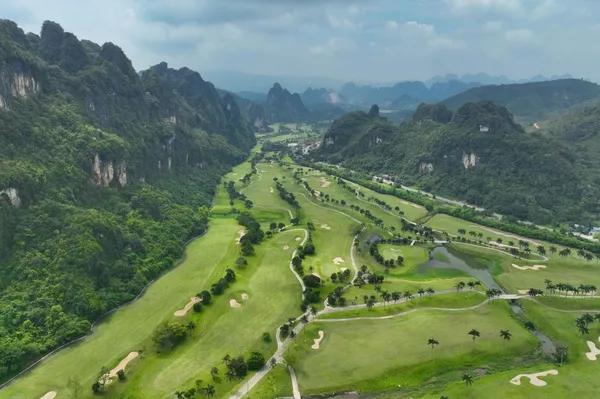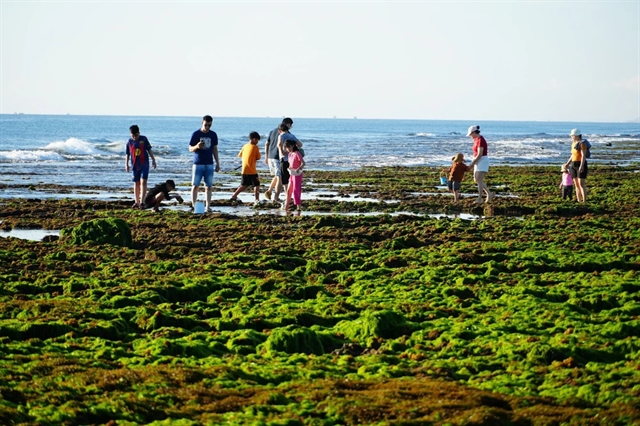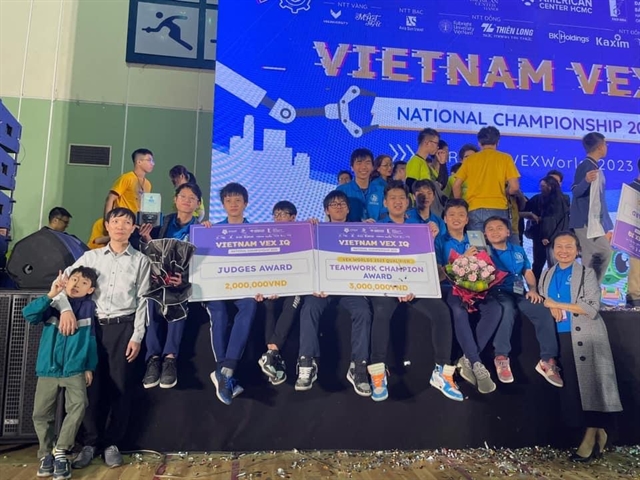 Opinion
Opinion
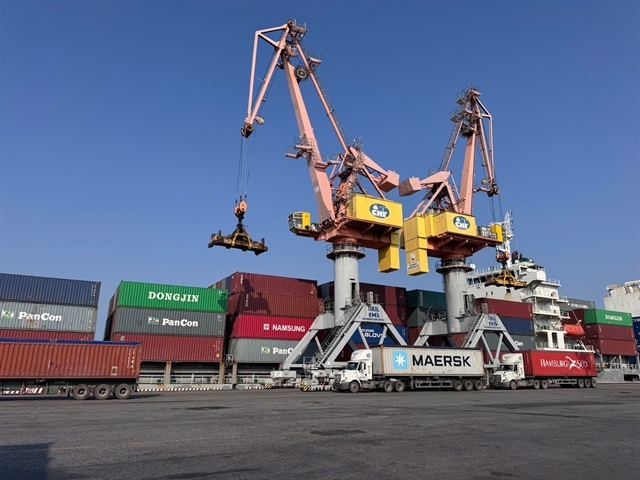
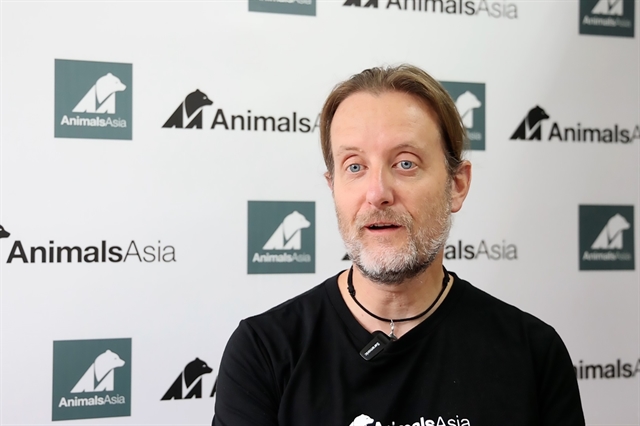 |
| Dave Neale, director of Animal Welfare at Animals Asia Foundation. — VNS Photo Nhật Hồng |
Dave Neale, director of Animal Welfare at Animals Asia Foundation speaks to Việt Nam News reporter Nhật Hồng on the progress and steps to be taken for the wellbeing of animals, whether wild or domestic, in Việt Nam.
How has the situation of animal welfare in Việt Nam changed in the past few years?
I think in the past few years, we've seen some real improvements in animal welfare here in Việt Nam, thanks very much to the work of Animals Asia, but other organisations which are working here as well, and also to the Government. So the Vietnamese Government, both the national government and the provincial government are now working much closer with many organisations to look at some of the problems which are happening here whether they be captive wild animals, or whether they be companion animals, and then to start to instigate improvements.
The changes have been very positive. There is still a long way to go and lots of things to do, but the changes have certainly been very encouraging in terms of the way that the overall state of animal welfare here in Việt Nam, and also in the public perception of animal welfare. I think for anything to change in any country, then really the public needs to be the ones who understand why that change is needed, and really help to drive that change. And so a lot of the essential work that organisations such as ourselves have been doing is the educational work both into schools and communities as well, to try to raise awareness about what animal welfare really means. And then to look at the situation as it is on the ground here in Việt Nam, and get people to encourage the facilities which are looking after animals to improve the way that they look after them.
Some of the biggest challenges we have are with regard to captive wild animals. In many cases, we've moved them from a wild setting into a captive situation, so we restrict a lot of their ability to be able to carry out those natural behaviours, which they would have evolved to carry out. So this creates one of the biggest challenges for any animal when it has been put into that environment.
To be able to put a wild animal into a captive environment, you need to be able to provide as close as possible, the conditions that it experiences in the wild. And I think that has been one of the biggest challenges for things like the keeping of animals in zoos, and safari parks, and also the use of animals in tourism as well. So things like the use of elephants in elephant riding tourism, the keeping of bears captive for traditional medicine - all of those create very big welfare problems, because you're keeping animals in very unnatural conditions.
You led a programme on improving welfare for elephants in Đắk Lắk, how is the progress and what is the plan to replicate this success elsewhere - particularly for those in captive?
We started working on the programme in Đắk Lắk Province around 2014. There is a situation where there are a lot of elephants in elephant tourism camps, and some of them were experiencing very poor welfare and some of them dying because of the conditions that they were being kept in.
When we started working there, our main aim was really to try to find a way to work with the local government and community and the elephants’ owners to try to improve the welfare of the elephants, but also ensure that there was an income for the elephant owners, the mahouts who look after the elephants, while still maintain tourist attraction to Đắk Lắk. People come to see elephants, that’s one of the big reasons why people go to Đắk Lắk.
We set up an agreement with the Đắk Lắk provincial government, all of the elephant owners and tourism companies to change their tourism model to a more elephant-friendly one in Yok Đôn National Park in 2018.
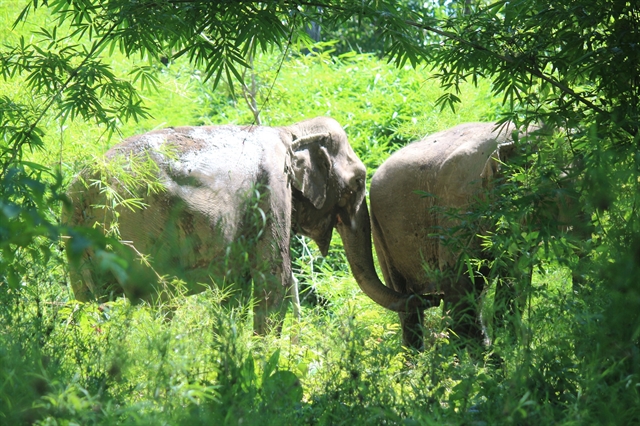 |
| Elephants H'Blú and Khăm Phanh at Yok Đôn National Park in Đắk Lắk Province. — Photo courtesy of Yok Đôn National Park |
Our first actual programme was to take three elephants which were all used for riding tourism, and to stop all of the riding, then allow those elephants to go out into the national park each day with their mahouts, and for tourists to just follow them to go into the park and then follow them in the forest. This now allows the tourists to see the elephants in a much more natural environment, and the elephants to carry out all those natural behaviours, which are essential for them for their own welfare.
We see great improvement in elephant welfare, we also see a real opportunity to raise awareness and educate people about how to look after animals in a captive situation by providing them with those behavioural needs that they have. We've currently got 10 elephants in Yok Đôn National Park now, and the plan is to try to bring more elephants in as much as we can. We're always talking with elephant owners to try to get them to bring their elephants into the park and be part of the programme. We just need to keep building this programme up so that it becomes financially successful for the elephant owners, and also for the Yok Đôn National Park so that they can run this programme themselves.
We're looking to try to replicate it in other areas - it's more difficult because you need a large area of forest. Yok Đôn National Park is a great one because it's actually an area where there are still wild elephants in Việt Nam, so it provides all the needs for the elephants. The Lắk Lake area in Đắk Lắk Province is another area where there are a lot of elephants.
We're currently in talks with the elephant owners and with the local government there to try to get a forested area where we can replicate this successful programme. Hopefully, in the future, we will have all of the elephants in that region out of riding tourism and in what we would call observational tourism.
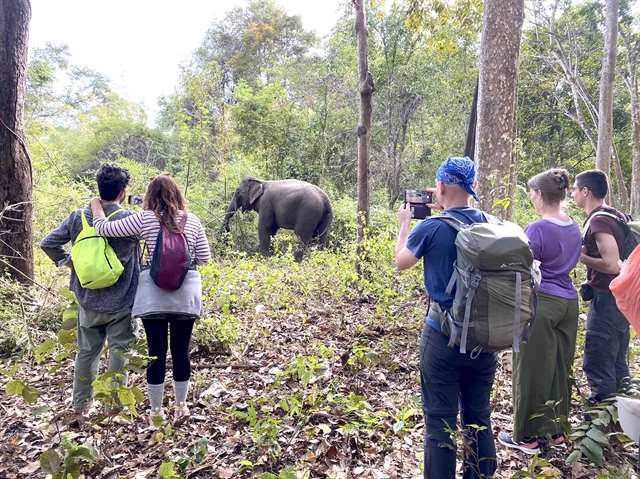 |
| Tourists take photos of an elephant at an observational tourism model at Yok Đôn National Park. — Photo courtesy of Yok Đôn National Park |
How effective are the current regulations in ensuring animal welfare?
There are some good regulations here in Việt Nam, both to protect animals and wildlife, as well as for animals in a captive situation, but they can always be better.
There are many regulations to now stop people from keeping many animals in captivity without a licence, which means to help prevent the wildlife trade from getting much worse. And the national and provincial governments do a huge amount of work to try to prevent animals from being captured from the wild to go into captivity, which is very good for both wild animals and companion animals.
There are now some regulations within the veterinary and husbandry laws here in Việt Nam, which do have stipulations that people should provide good care for animals, but I think those need to be strengthened. At the moment, the wording is very vague, which means the awareness of what that means in the general public is also very vague. I think there's a lot of work to be done at sort of a legislation level to make sure that the articles within the current laws really have meaning and that people can understand what that means.
The laws around the world are changing for the better for animals. Now, rather than just not being cruel to an animal, it's all about creating a situation where the animal experiences positive welfare, the animal is in a good place, and its emotions are looked after, where it’s actually happy. And so Việt Nam also needs to look at that model, rather than just saying ‘You can't be bad to animals’, and ‘If you are neglecting an animal and you're being cruel, it can be taken away’. We need to now try to get into a place where society is actually saying ‘We need to actually make sure that animals are happy in that environment’.
In addition to legislation and conservational work, it seems that the public’s opinion plays a key role in improving animal welfare. What has been done in this aspect?
I think the changes in public opinion and raising awareness and changing people's behaviours is probably the most important job that animal welfare and conservation organisations can do. Because sometimes we think we're working with the animals, but actually the most important side is actually working with people, because it's the people that influence whether the animals experience a good or a bad life, or whether the habitat is protected or not, it's absolutely crucial to have that elements of awareness raising and education in any programme.
In all of the programmes that we develop here in Việt Nam, whether they be specifically for bears, elephants, or companion animals, we have an education element to those. We put as much information out as possible, both within schools, local communities or with university groups, about those particular programmes and some of the issues that are happening, but also how people can help.
One of the main things that we really try to do is to get people to see the situation from the perspective of the animal. So to try to understand how that animal has experienced in life, and how different it is to what they've evolved to experience. So say an elephant is evolved to live with a family of other elephants in a very extensive wild environment and have lots of choice throughout when it goes about its normal day. And to be able to have sympathy and empathy for an elephant which doesn't have that, you really need to be able to understand where that elephant has come from, and how it's ended up in this new situation.
We talk a lot about the need for social interaction, the value of social bonds between animals, and their emotions, how they experience their world, how they experience things on a daily basis, but also just how intelligent they are and how they can problem solve, how they can have long term memories - all of these things which aren't traditionally talked about maybe in schools when we talk about animals. If we can get those sorts of things into the minds of people, I think automatically, they start to see why it might be wrong, treating animals in different ways, and so that changes that sort of societal view of animals in the long term. — VNS

